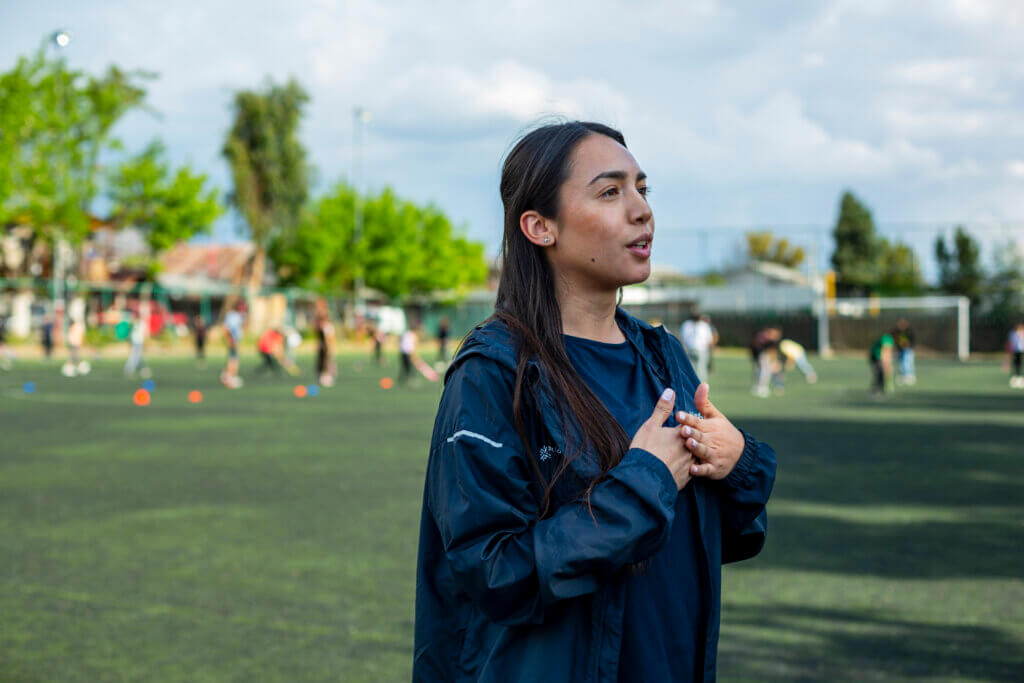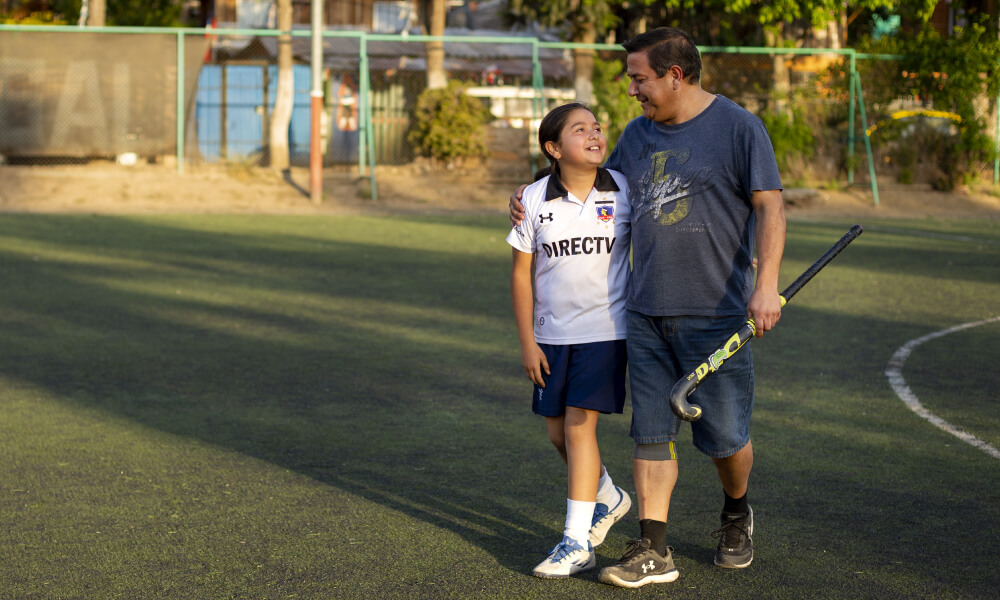The relationship between a child and his or her parents is one of the most important factors in a person’s development. From birth, the way children interact with their primary caregivers determines the basis for the emotional, cognitive and social skills they will have in the future, which in turn will help them achieve greater well-being and impact their quality of life.
However, for many parents, finding the balance between providing love and affection and at the same time setting limits is not easy. In this context, positive parenting has gained popularity in Chile, as well as in the rest of the world, in recent years. An approach to parenting that emphasizes fostering a good relationship and healthy development in children, promoting the strengthening of family ties, constructive communication and collaboration between parents and children.
This theory questions the parenting approach that predominated in previous decades, which was focused on the authoritarian model, as well as on obedience, discipline and even punishment. Tamara Reyes, methodological coordinator of Fundación Luksic and implementer of Triple P, a positive parenting program focused on supporting fathers, mothers and families, explains that over time it has been shown that positive reinforcement is much more beneficial than challenges or punishments.

“Implementing positive parenting or using some of its strategies has many benefits for both children and caregivers, mainly because it is a way of parenting where punishment is not used as a strategy to promote good behavior but rather respect, positive attention and reasoning,” says Tamara.
It is important to point out that there are many parenting methodologies and styles, and that it is up to the families themselves to decide which one best suits them, depending on each context and personal characteristics. In the case of positive parenting, this initiative boosts and improves the socioemotional development of children, since “it helps children to live in a predictable environment where they know what is expected of them, through clear and consistent rules”, adds the Triple P expert.
Positive parenting in everyday life
One way in which positive parenting can be incorporated into daily life is to reinforce positive behaviors, instead of focusing on what the children have done wrong. “For example, if we are in the process of them learning to be more independent and tidy up their piece, then let’s pay attention to when they do and work hard at it. Let’s praise exactly what we see without overdoing it. How nice you made the bed, I like how you put your favorite stuffed animals in the center! This helps children want to repeat that behavior when they are seen positively and feel more confident,” explains the coordinator.
Another way to strengthen relationships can be to take advantage of everyday situations to encourage learning. When children ask questions like “And why?” the idea is that we don’t give them the answer instantly. For example; we’re on our way to soccer practice and we give them a fruit snack and why banana mom? Let’s make them think and come up with the properties and benefits of eating this type of fruit themselves. How do you think eating bananas can help your child?
The Luksic Foundation’s work with its sports schools
Precisely one of the objectives of the Luksic Foundation’s sports schools is to contribute and support families to develop a positive upbringing based on the teaching of parenting skills. To this end, during 2022, seminars and workshops were held on this methodology, a space where parents could learn about this practice and share experiences.
“A fundamental part of supporting the upbringing of children and adolescents in our schools is working directly with their caregivers. The families were able to approach this topic and were grateful for the instances as it allowed them to be in a space where they know other behavioral situations that help them to become aware of certain forms of parenting that they were implementing and that they can improve,” added Reyes.
For 2023, the same initiative will be carried out with the parents of the Luksic Foundation’s sports schools, whose applications are open until March 31. More information at www.fundacionluksic.cl/deportes.
